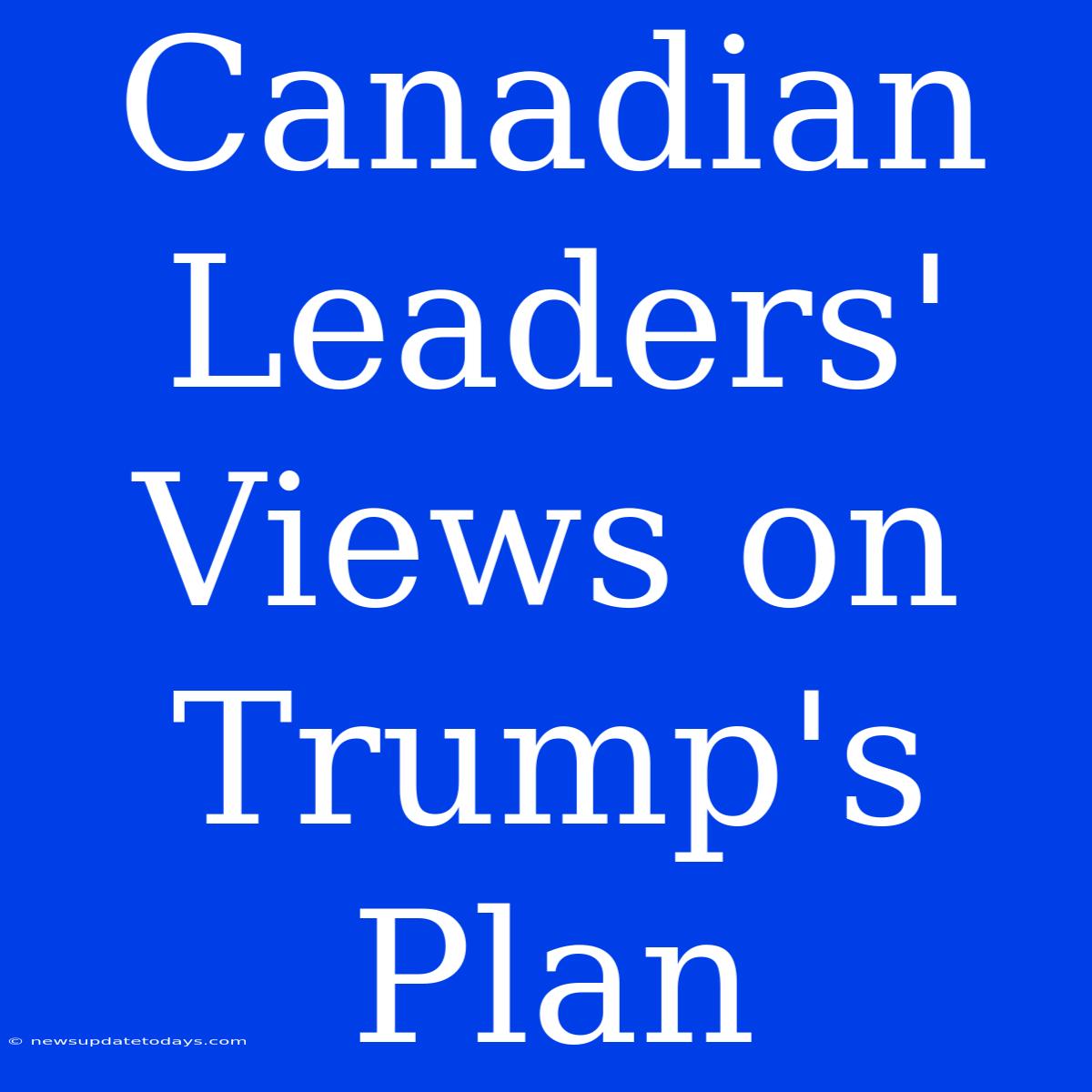Canadian Leaders' Divided Views on Trump's Plans: A Nation Navigates Uncertainty
Donald Trump's presidency presented significant challenges and opportunities for Canada, prompting diverse reactions from Canadian leaders across the political spectrum. This article delves into the varied responses to Trump's key policies and initiatives, exploring the underlying tensions and strategic considerations shaping Canada's approach.
Navigating Trade Tensions: NAFTA and Beyond
Perhaps the most significant area of contention centered on the North American Free Trade Agreement (NAFTA). Trump's repeated threats to withdraw from NAFTA, coupled with his "America First" rhetoric, created considerable anxiety within Canada. Prime Minister Justin Trudeau, while engaging in diplomatic negotiations, also adopted a firm stance, emphasizing the mutual benefits of the agreement and Canada's determination to protect its interests. Opposition leaders, while largely united in their opposition to Trump's aggressive trade tactics, varied in their preferred strategies for engagement. Some advocated for a more conciliatory approach, while others championed a more assertive defense of Canadian sovereignty.
Environmental Policy Divergence: A Clash of Priorities
Trump's decision to withdraw the United States from the Paris Agreement on climate change provoked sharp criticism from Canadian leaders. Trudeau publicly condemned the move, highlighting Canada's commitment to environmental protection and international cooperation on climate action. This divergence in environmental policy underscored a fundamental difference in priorities between the two nations, creating challenges for collaborative efforts on shared environmental concerns. Provincial leaders, particularly those in environmentally conscious provinces like British Columbia, voiced even stronger condemnation of Trump's policies.
Security and Defense: Balancing Cooperation and Competition
While navigating trade disputes, Canada also needed to address the implications of Trump's foreign policy shifts for North American security. The close defense ties between Canada and the United States remained a cornerstone of Canadian policy, but Trump's unpredictable approach to alliances created uncertainty. Canadian leaders had to balance the need for continued cooperation on defense matters with a cautious approach to a potentially less predictable ally. This complex balancing act required careful consideration of national interests and regional stability.
The Impact on Canadian Identity and Foreign Policy
Trump's presidency had a profound impact on Canada's sense of national identity and its foreign policy orientation. The need to defend Canadian interests against perceived American aggression led to a strengthening of national unity and a more assertive Canadian foreign policy. The experience reinforced the importance of diversifying trade relationships and strengthening alliances beyond the United States.
Conclusion: A Legacy of Uncertainty and Adaptation
Trump's presidency forced Canada to confront significant challenges and adapt its strategies accordingly. While the specific approaches of Canadian leaders differed, a common thread emerged: a commitment to protecting Canadian interests while navigating a complex and often unpredictable international environment. The legacy of this period continues to shape Canada's relationship with the United States and its broader foreign policy objectives. Further research is needed to fully understand the long-term consequences of this period of heightened tension and strategic readjustment.

